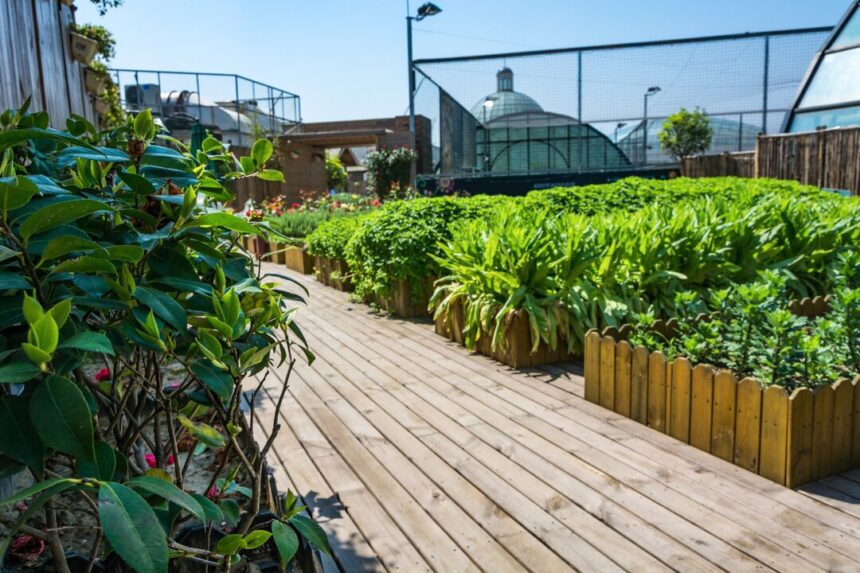In today’s rapidly urbanizing world, the concept of urban farming is gaining traction as a sustainable solution to food security, environmental conservation, and community engagement. Urban farming refers to the practice of cultivating, processing, and distributing food within urban areas, often in small or unconventional spaces. From rooftop gardens to vertical farms and community plots, urban farming offers a plethora of opportunities for individuals and communities to reconnect with food production and foster a more sustainable way of living.
- Maximizing Small Spaces:
Urban farming is all about making the most of limited space. In cities where land is scarce and expensive, urban farmers utilize innovative techniques such as vertical gardening, hydroponics, and aquaponics to grow food vertically or in controlled indoor environments. By utilizing walls, balconies, rooftops, and even windowsills, urban farmers can create thriving gardens in the most unlikely of spaces. - Promoting Food Security:
One of the primary goals of urban farming is to increase access to fresh, nutritious food in urban areas, where food deserts and limited access to grocery stores are prevalent. By growing food locally, urban farmers can reduce dependence on long-distance food supply chains and provide communities with access to fresh produce year-round. Community gardens and urban farms also serve as educational hubs, teaching residents about sustainable agriculture and healthy eating habits. - Environmental Benefits:
Urban farming has numerous environmental benefits, including reducing carbon emissions associated with transporting food over long distances, mitigating urban heat island effects, and promoting biodiversity in urban ecosystems. By incorporating green spaces into the urban landscape, urban farms help to improve air quality, reduce stormwater runoff, and provide habitats for pollinators and wildlife. - Building Community Resilience:
Urban farming fosters community resilience by bringing people together to work towards a common goal: producing food locally. Community gardens and urban farms serve as gathering spaces where neighbors can connect, share resources, and learn from one another. By cultivating a sense of ownership and stewardship over shared green spaces, urban farmers help to build stronger, more resilient communities. - Economic Opportunities:
Urban farming can also create economic opportunities for individuals and communities, particularly in underserved urban areas. By selling produce at farmers’ markets, to local restaurants, or through community-supported agriculture (CSA) programs, urban farmers can generate income and support local economies. Additionally, urban farming initiatives often provide employment and training opportunities, particularly for marginalized groups and youth. - Overcoming Challenges:
While urban farming offers numerous benefits, it also comes with its share of challenges. Limited space, soil contamination, zoning regulations, and access to water are common obstacles faced by urban farmers. However, with creativity, innovation, and community support, many of these challenges can be overcome through techniques such as container gardening, soil remediation, and rainwater harvesting. - Policy and Advocacy:
To support the growth of urban farming initiatives, policymakers must enact supportive policies and regulations at the local, regional, and national levels. This may include providing access to vacant land for community gardens, offering incentives for green infrastructure projects, and integrating urban agriculture into urban planning and development initiatives. Advocacy efforts by grassroots organizations and urban farming advocates can also help raise awareness and mobilize support for urban farming initiatives.
Urban farming holds tremendous promise as a sustainable solution to food insecurity, environmental degradation, and social isolation in urban areas. By harnessing the power of small spaces, urban farmers are transforming cities into vibrant, green spaces where food is grown, communities thrive, and the environment is protected. Through innovation, collaboration, and advocacy, urban farming has the potential to revolutionize the way we think about food production and consumption in urban environments, creating healthier, more resilient cities for generations to come.
Join 'Farmers Mag' WhatsApp Channel
Get the latest Farming news and tips delivered straight to your WhatsApp
CLICK HERE TO JOIN






